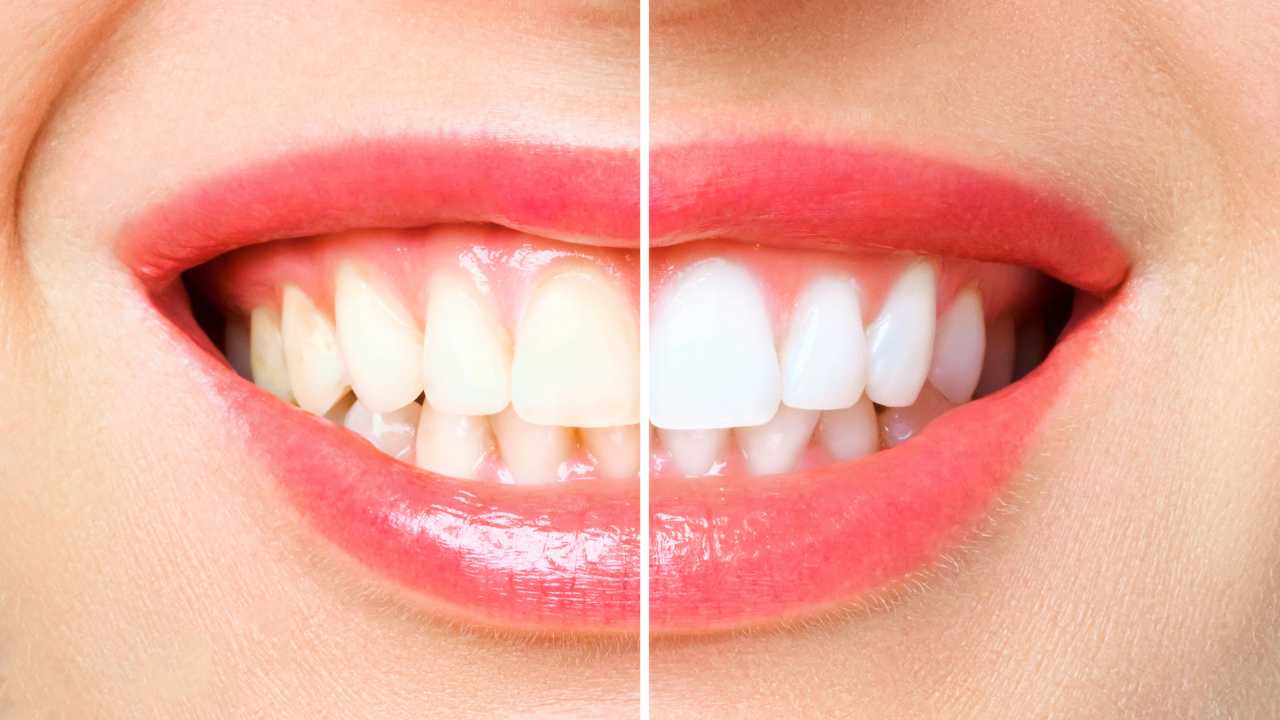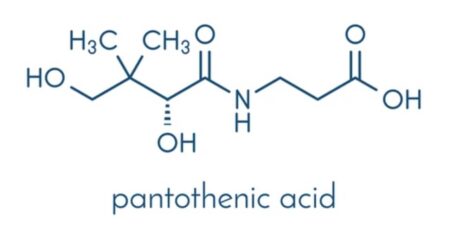When White Turns Yellow: Exploring Vitamin Deficiencies Behind Teeth Discoloration
When you smile in the mirror, what do you see? Is it a bright, healthy row of pearly whites, or has a yellow hue started to tarnish your once-beaming grin? Teeth discoloration can affect your confidence and be a sign of something deeper – a vitamin deficiency.
Most people chalk up teeth discoloration to poor oral hygiene or excessive coffee and wine intake. While these culprits often play a role, many overlook another silent factor – vitamin deficiencies. Vitamins play a crucial role in our overall health, including our dental health.
This blog post explores the hidden connection between vitamin deficiencies and the disheartening yellow shade that might dim your smile. So, let’s dive in and get back that sparkling smile!
Understanding Teeth Discoloration
Teeth discoloration is a common dental condition that causes the teeth to lose their bright, white shine. Discoloration can vary from light yellow to brown or even gray. But what exactly causes our teeth to shift in shade?
There are three main types of teeth discoloration:
- Extrinsic
- Intrinsic, and
- Age-related
Extrinsic discoloration
Extrinsic discoloration occurs on your teeth’ outer layer or enamel. This is often the result of lifestyle habits such as drinking coffee, tea, wine, or tobacco. Certain medications can also stain the teeth’s exterior.
Intrinsic discoloration
Intrinsic discoloration, on the other hand, happens when the inner structure of the tooth, or dentin, darkens or turns yellow. It can be due to several factors, such as exposure to high fluoride levels as a child, tetracycline antibiotics, or tooth trauma.
Age-related discoloration
Finally, age-related discoloration is a combination of extrinsic and intrinsic causes. The outer enamel layer thins as you age, allowing the dentin’s yellowish color to shine. Simultaneously, the lifestyle habits accumulated over the years also contribute to discoloration.
Understanding the source of tooth discoloration is crucial to finding an effective solution. But many don’t realize that underneath these familiar culprits may lurk a deeper cause – a vitamin deficiency.
Role of Vitamins in Dental Health
Vitamins are vital for overall health, and your teeth are no exception. They play a crucial role in maintaining the health and integrity of your teeth, protecting against cavities, gum disease, and even discoloration. Here are a few key vitamins that are essential for optimal dental health:
- Vitamin A: This vitamin is crucial for maintaining the salivary flow in your mouth, which helps keep your mouth clean. Vitamin A also aids in the healthy development of mucous membranes, which act as protective barriers in your mouth.
- Vitamin C: Known for its immune-boosting properties, vitamin C is also essential in maintaining the health of your gums and is necessary for collagen production. A deficiency in this vitamin can lead to bleeding gums and may even contribute to teeth discoloration.
- Vitamin D: Often known as the ‘sunshine vitamin,’ Vitamin D plays a crucial role in the body’s absorption of calcium, which in turn strengthens the teeth and helps maintain their color.
- B Vitamins: Certain B vitamins, such as B12, are critical for oral health. A deficiency in these vitamins can lead to various oral problems, including discolored or sore tongue, mouth ulcers, and a burning sensation in the mouth.
Maintaining optimal levels of these vitamins can play a part in keeping your smile white and bright. However, deficiencies can wreak havoc on oral health and maybe a silent contributor to teeth discoloration.
The Link Between Vitamin Deficiency and Teeth Discoloration
Our bodies are complex systems where everything is connected, and seemingly unrelated issues can have common roots. Teeth discoloration is one of these conditions where the culprits can be surprising. Let’s delve deeper into how vitamin deficiencies like vitamin C, D, and B-complex can lead to discoloration of teeth.
- Vitamin C Deficiency: Also known as scurvy, this deficiency can lead to bleeding gums and loose teeth. This is because vitamin C is crucial in collagen production, a protein that helps form gums. When gums are unhealthy, they can cause teeth to discolor.
- Vitamin D Deficiency: Vitamin D is responsible for calcium absorption, which is crucial for tooth structure and health. A lack of vitamin D can lead to under-mineralized teeth more prone to decay and discoloration.
- Vitamin B-Complex Deficiency: Certain B vitamins, like B12, are essential for the health of your mouth and tongue. A deficiency can cause a pale or discolored tongue, inflammation, and a burning sensation in the mouth. This can indirectly affect the color of your teeth.
Studies have shown a strong correlation between vitamin deficiencies and teeth discoloration. If necessary, ensuring you have a balanced diet rich in these vitamins or supplements can help maintain your oral health and prevent your teeth from turning yellow.
Can B12 Deficiency Affect Teeth?
A vitamin B12 deficiency can affect your oral health, including your teeth. Vitamin B12 plays a critical role in cell production, and a deficiency can impair the body’s ability to produce enough healthy red blood cells.
This can lead to anemia, which can cause a variety of oral symptoms, including:
- Oral ulcers or canker sores: These are small, painful ulcers that can form inside your mouth due to a lack of B12.
- Glossitis, or an inflamed tongue: This condition can cause your tongue to become swollen, red, and smooth, making it painful to eat and talk.
- Changes in the pigmentation of your oral tissues: This can make your tongue appear very red, or you may notice white patches in your mouth.
- A burning sensation in the mouth or tongue: This is often described as a burning, tingling sensation, particularly in the tongue.
However, the relationship between vitamin B12 deficiency and teeth discoloration is not straightforward. While the above-mentioned symptoms may cause discomfort and impact oral health, direct teeth discoloration from B12 deficiency is less common.
Nonetheless, a general decline in oral health could indirectly contribute to conditions that discolor teeth over time.
Preventing Teeth Discoloration through Proper Nutrition

Prevention, as they say, is the best cure. While professional teeth whitening and oral care routines can help treat existing discoloration, preventing it from happening in the first place should be the ultimate goal. Here are some nutrition-focused prevention strategies:
- Eat a Balanced Diet: Consuming a well-rounded diet is the first step in preventing discoloration due to vitamin deficiencies. This includes foods rich in Vitamin C (such as citrus fruits, bell peppers, and broccoli), Vitamin D (like fatty fish, fortified dairy products, and egg yolks), and B vitamins (found in meats, whole grains, and legumes).
- Take Supplements If Necessary: If you cannot get enough of these vitamins through your diet, consider taking a supplement. Vitamin MD provides a range of high-quality vitamin supplements tailored to your needs. However, before starting any supplement routine, it’s best to consult with a healthcare provider.
- Stay Hydrated: Drinking plenty of water not only supports overall health but can also prevent teeth staining. Water helps rinse away food particles and neutralizes acids that can erode enamel and cause discoloration.
- Limit Foods and Drinks That Stain Teeth: While maintaining a balanced diet, try to limit the intake of food and drinks known to stain teeth, like coffee, tea, wine, and certain fruits and vegetables.
Taking a proactive approach to your nutrition can go a long way in maintaining your dental health and keeping that bright, white smile. Remember, your mouth mirrors your health, and a healthy diet contributes to a radiant smile.
Detecting and Treating Vitamin Deficiencies for Dental Health
If you’ve noticed your teeth turning yellow despite good oral hygiene practices, it might be time to look deeper. Vitamin deficiencies are not always easy to detect, as they can manifest subtly. Here’s how you can go about it:
- Watch for Symptoms: Besides teeth discoloration, symptoms of vitamin deficiencies can include fatigue, shortness of breath, dizziness, palpitations, bleeding gums, or mouth ulcers. If you experience these, it may be worth exploring further.
- Consult a Healthcare Provider: If you suspect a vitamin deficiency is behind your teeth discoloration, consult a healthcare provider. They can conduct tests to verify your suspicions and guide you on the right treatment course, such as a diet change or supplementation.
- Start a Supplement Routine If Advised: If your healthcare provider confirms a deficiency and recommends supplementation, consider high-quality supplements like those offered by Vitamin MD. It’s essential to follow the prescribed dosage and regimen for best results.
- Follow-up Regularly: Overcoming vitamin deficiencies can take time. Regular follow-ups with your healthcare provider can help track your progress and make necessary adjustments.
Understanding and addressing the root causes of teeth discoloration, such as vitamin deficiencies, can help you regain confidence in your smile. Remember, every journey to a brighter smile begins with a single step toward better health.
Conclusion
The health of your teeth is more than just about maintaining a gleaming smile—it’s a window into your overall wellness.
Teeth discoloration can sometimes be a sign of underlying vitamin deficiencies. While addressing discoloration is important, uncovering and addressing these deeper health issues is critical to long-term oral health.
Remember, a balanced diet and proper supplementation can go a long way in preserving that radiant smile. As always, consult with a healthcare provider for personalized advice. Keep smiling, knowing that Vitamin MD is with you on your overall health and wellness journey!












Leave a Reply